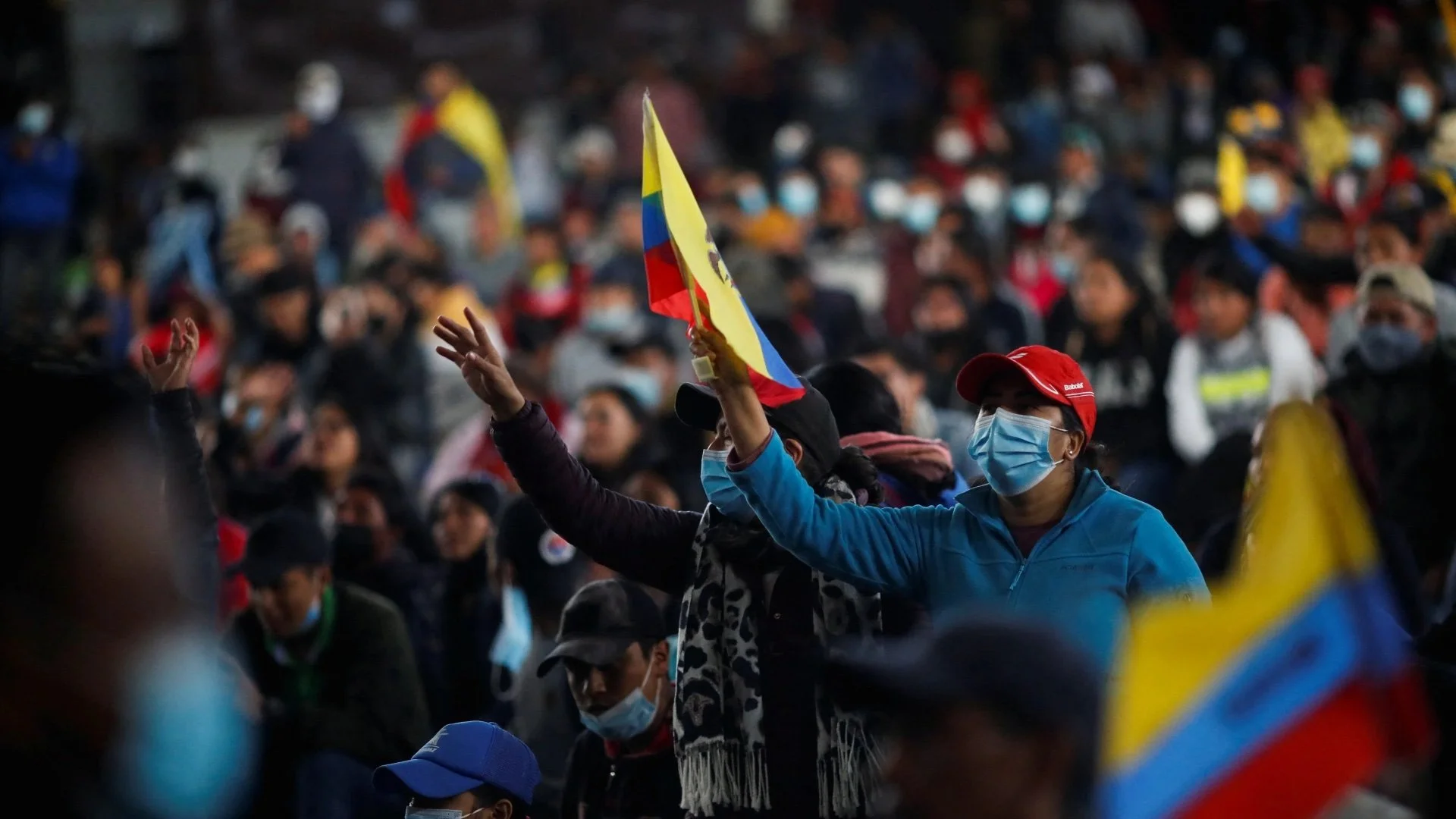Ecuador’s National Assembly Begins An Impeachment Attempt Against President Guillermo Lasso
Ecuador's President Guillermo Lasso looks on as he meets people affected by a landslide in Alausi. Photo: Reuters/Karen Toro
Ecuador's Constitutional Court ruled 6-3 on Wednesday that the National Assembly may begin the process of deliberating the impeachment of President Guillermo Lasso. Of three accusations, the court allowed embezzlement accusations, while two on abuses of power were ruled out on procedural grounds. It warned in a statement that "this court exhorts the institutions involved in the impeachment proceedings to always act within the rights provided by the constitution and the rule of law."
The embezzlement allegations began in March, when the La Posta newspaper reported on Lasso’s brother-in-law, Danilo Carrera, supposedly leading a corruption network involving public companies National Electricity Corporation (CNEL) and Electricity Corporation of Ecuador (CELEC). This sparked an investigation by the Ecuadorian State Attorney General’s Office into potential graft at the state companies, and now the impeachment proceedings. The charges are crimes against state security and, by omission, corruption in the form of bribery, embezzlement and extortion.
On Friday, the Legislative Administration Council of the National Assembly approved the process, voting 6-1. The next step will be for the Oversight Commission to complete and present a report to the National Assembly. It has one month to compile evidence and arguments, and Lasso will have a chance to defend himself. At the end of the thirty days, the president of the Parliament, Virgilio Saquicela, will convene the National Assembly to debate and then hold a vote on impeachment.
92 votes out of 137 legislators in the unicameral legislature are necessary for the motion to pass. Saquicela has promised that he “will guarantee that due process is complied with and it will be the legislators who will decide at the end of this process, whether or not to proceed with the removal of the Head of State." Among the legislators, the opposition holds a majority. Led by the Union for Hope party of former President Rafael Correa, as well as indigenous groups, the opposition has gridlocked the National Assembly throughout Lasso’s time in office.
A demonstrator in Quito waves an Ecuadorian flag during a cultural festival amid an impasse between the government of President Guillermo Lasso and Indigenous demonstrators. Photo: Adriano Machado/Reuters
Lasso, a former banker, became president in May 2021. He has pushed a conservative agenda, but has struggled with an economic crisis and rising crime. On Thursday, he claimed that he was innocent and that the impeachment process was a political attack attempting to undermine him without evidence. This is not the first impeachment effort against him: In June 2022, an impeachment attempt failed with only 80 votes. It was based on protests by the indigenous population over high living costs, so the current accusations are different and could potentially be more successful, as they are grounded in more realistic accusations.
Currently, Lasso’s only other option is to use a “mutual death” clause from the 2008 elections, where he calls for early elections for both the presidency and the legislature. He would be able to rule by decree for six months, as he campaigns for re-election. However, this is unlikely, considering his disapproval rating was at 85 percent in February.
The opposition has claimed that it is confident the impeachment attempt will succeed. However, Tamara Taraciuk Broner, Human Rights Watch Americas director, warns that “removing the president could impact the country’s already weak institutions. A thorough process that complies with the legal requirements will ensure that a fair and just decision is made, avoiding a destitution motivated only by political reasons.”


